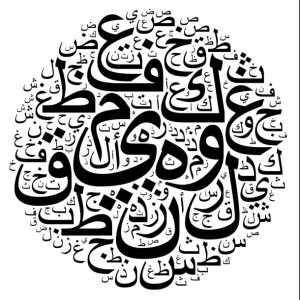Table of Contents
Key Points
- Historical technical limitations restricted early Arabic internet development
- Many Arabic bloggers prefer English, reducing Arabic content online
- Economic barriers limit Arabic digital content creation
- Initiatives are working toward increasing Arabic digital presence
- Arabic internet growth still lags behind major global languages

The Arabic language, despite being the fifth-largest language on Earth, has a surprisingly low presence on the internet. There are over 237 million native Arabic speakers, yet Arabic internet content represents less than 1% of all web pages. The limited amount of Arabic language on the internet contrasts sharply with its global significance. In the early days, users of the internet in Arabic faced challenges as Roman scripts were more prevalent, forcing them to use transliteration or switch to English. Though Arabic script was introduced online in the late 1990s, and the first Arabic language email was launched in 2000, Arabic content has remained limited.
Historical Challenges for the Arabic Language on the Internet
The early growth of the Arabic internet was constrained by structural, technical, and regulatory limitations. Unlike English and other Latin-based languages, Arabic faced delayed digital integration due to script compatibility issues, weak localization infrastructure, and restrictive media environments. These combined factors explain many of the reasons for low Arabic internet content and continue to influence Arabic content online today.
Key Historical Barriers to Arabic Content Online
- Dominance of Roman scripts in early web development
- Limited right-to-left (RTL) and Arabic script support
- Weak Arabic SEO and search engine indexing
- Online censorship in several Arabic-speaking countries
- Preference for English to reach global audiences
These factors slowed the growth of Arabic content online and limited the overall Arabic digital presence compared to other major languages.
Why Arabic Bloggers Prefer English
Arabic bloggers frequently write in English to avoid censorship and reach a global audience. In countries with strict internet laws, Arabic bloggers prefer English to avoid being penalized for sensitive topics, and this significantly reduces the amount of Arabic internet content.
Reasons for low Arabic internet content include:
- Government censorship and content regulation
- Desire to reach international audiences
- Greater monetization opportunities in English
- Limited Arabic SEO infrastructure
How much Arabic content is on the Internet? Currently, Arabic language on the internet represents less than 1% of global web pages, highlighting the obstacles Arabic speakers face online.
Economic Barriers to Arabic Internet Growth
Economic factors also impact the presence of Arabic language on the web. In many Arabic-speaking countries, lower-income levels restrict access to computers, limiting internet usage. Instead, most individuals access Arabic content on the internet through mobile devices, which is not conducive to creating detailed Arabic internet language websites.
Key economic barriers include:
- Limited broadband infrastructure
- Lower personal computer ownership rates
- Digital divide between urban and rural populations
- Limited funding for Arabic content development
This economic divide, coupled with the average income per capita, hinders the development of an Arabic web presence comparable to other languages.
Related: Understanding The Arabic Language
Initiatives to Increase Arabic Content on the Web
Yasmin Omer, the owner of Dot Shabaka, emphasizes the importance of Arabic language websites. His company offers domain registration in Arabic, such as “dot shabaka,” to encourage the creation of fully Arabic websites. Dot Shabaka operates outside of censorship, providing a safer platform for Arabic bloggers to create content. This initiative helps promote Arabic language presence on the internet without the restrictions found in many Arabic-speaking countries. What is the status of Arabic language in the world? Arabic is one of the most widely spoken languages globally, but its online presence remains disproportionately low.
Comparisons with Other Languages
Compared to other languages like English or Chinese, Arabic language online struggles to grow. The web Arabish (a blend of Arabic and Roman script) is often used instead of proper Arabic. As more Arabic internet language content is created, it will begin to rival other regional languages like Turkish or Persian. Is Arabic an in-demand language? Arabic remains highly valuable, especially in fields like international business, diplomacy, and culture, making its limited presence on the web all the more surprising.
Conclusion
The presence of Arabic language on the internet is currently lower than expected, but with ongoing initiatives, such as Dot Shabaka, and an increasing interest in Arabic language learning, the Arabic internet language could soon grow. Overcoming censorship and increasing access to affordable technology will be key to making internet in Arabic a larger part of the global online landscape.
Call to Action
Looking to expand your reach in Arabic-speaking markets? Our professional Arabic translation and localization services help businesses build strong Arabic content online and increase Arabic digital presence effectively.
Explore our Arabic language services and website localization solutions to strengthen your Arabic internet strategy and connect with millions of Arabic speakers worldwide.
FAQs:
Why Arabic Language Presence on the Internet is Lower Than Expected?
Arabic digital content remains low due to historical technical limitations, censorship policies, economic barriers, and a preference among bloggers to publish in English.
Is Arabic a low-resource language?
In terms of digital resources and online datasets, Arabic is often considered under-resourced compared to English or Chinese, particularly in AI, search optimization, and web indexing.
What is the future of the Arabic language?
The future of Arabic is strong demographically, but its digital expansion depends on investment in technology, localization, and Arabic SEO strategies.
How can Arabic digital presence be increased?
Increasing Arabic digital presence requires improved internet infrastructure, support for Arabic content creators, localized domain systems, and reduced censorship barriers.
Related:


